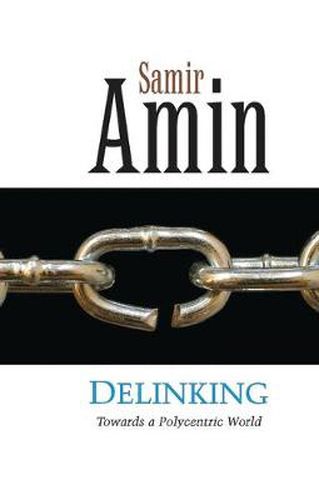Readings Newsletter
Become a Readings Member to make your shopping experience even easier.
Sign in or sign up for free!
You’re not far away from qualifying for FREE standard shipping within Australia
You’ve qualified for FREE standard shipping within Australia
The cart is loading…






Is it possible for the Third World to escape from the constraints imposed by the world’s economic system? What room for manoeuvre do these states have, and are they condemned to dependence?
These are some of the questions Samir Amin confronts in Delinking. He argues that Third World countries cannot hope to raise living standards if they continue to adjust their development strategies in line with the trends set by a fundamentally unequal global capitalist system over which they have no control.
The only alternative, he maintains, is for Third World societies to ‘delink’ from the logic of the global system - each country submitting its external economic relations to the logic of domestic development priorities, which in turn requires a broad coalition of popular forces in control of the state. Delinking, he shows, is not about absolute autarchy, but a neutralizing of the effects of external economic interactions on internal choices.
$9.00 standard shipping within Australia
FREE standard shipping within Australia for orders over $100.00
Express & International shipping calculated at checkout
Is it possible for the Third World to escape from the constraints imposed by the world’s economic system? What room for manoeuvre do these states have, and are they condemned to dependence?
These are some of the questions Samir Amin confronts in Delinking. He argues that Third World countries cannot hope to raise living standards if they continue to adjust their development strategies in line with the trends set by a fundamentally unequal global capitalist system over which they have no control.
The only alternative, he maintains, is for Third World societies to ‘delink’ from the logic of the global system - each country submitting its external economic relations to the logic of domestic development priorities, which in turn requires a broad coalition of popular forces in control of the state. Delinking, he shows, is not about absolute autarchy, but a neutralizing of the effects of external economic interactions on internal choices.